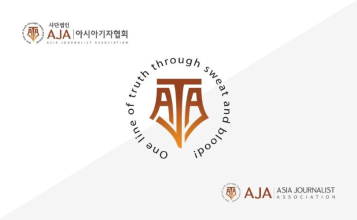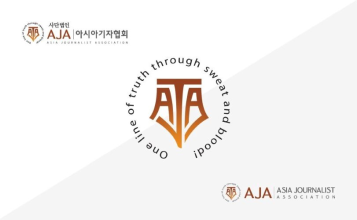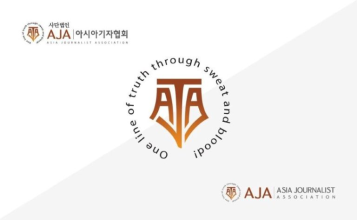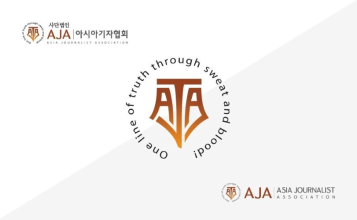AJA Newsbites – June 5, 2025

AJA Newsbites is a curated roundup of major news and developments from across Asia, brought to you by members of Asia Journalist Association (AJA)
Lee Sang-ki, THE AsiaN, Korea
In South Korea’s 21st presidential election, Lee Jae-myung won over 17.28 million votes, setting a new record. However, his vote share fell short of a majority, standing at 49.42%. Combined, conservative candidates Kim Moon-soo and Lee Jun-seok secured 49.49%, slightly surpassing Lee.
A clear regional and generational divide was evident—Lee led in the west and among younger voters, while Kim dominated the east and older demographics.
Analysts interpret the result as a public call for unity, not just a victory. The new president now faces the challenge of governing a nation split down the middle, requiring inclusive and unifying leadership.
Norila Daud, Malaysia World News, Malaysia
The Minister of Housing and Local Government of Malaysia, Nga Kor Ming, has been elected as President of the United Nations Habitat Assembly in a meeting held on 30 May 2025 in Nairobi, Kenya.
The Foreign Ministry, in a statement, said that besides being the President of the Assembly, Kor Ming is also a member of its Executive Board.
“He will represent Malaysia and preside over the Assembly as President for a two-year term from June 2025 to June 2027. Malaysia will also serve as one of the 36 members in the UN-Habitat Executive Board for a two-year term from June 2027 to June 2029,” the statement said.
The UN-Habitat Assembly and the Executive Board are the primary mechanisms of the world body that set policy direction on Sustainable Urban Development and Human Settlements.
The Ministry of Foreign Affairs wishes to thank all 193 Member States of the UN-Habitat Assembly for their overwhelming support and confidence in Malaysia to lead the Assembly and steer the Executive Board towards advancing the implementation of the United Nations New Urban Agenda for the period 2025 to 2029.
The Ministry of Foreign Affairs, through the High Commission of Malaysia in Nairobi as the Permanent Representative of Malaysia to the UN-Habitat, will continue to work closely with the Ministry of Housing and Local Government to ensure Malaysia’s tenure in the governance of the UN body is a sterling success.
Chhay Sophal, Cambodia News Online, Cambodia
Indonesian Ambassador to Cambodia on Wednesday expressed his support at his Embassy in Phnom Penh for the Cambodian Royal Government’s decision to bring the current border disputes with Thailand before the International Court of Justice (ICJ).
Speaking at a media forum co-hosted by the Club of Cambodian Journalists and the Indonesian Embassy under the theme “Cambodia–Indonesia Diplomatic Relations and Development in Cambodia,” Ambassador Santo Darmosumarto said that the ICJ represents a legitimate and constructive resolution mechanism, noting that Indonesia and Malaysia had previously brought their own territorial disputes before the ICJ in The Hague.
“Bringing the matter to the ICJ is an option for any country when facing challenges related to their border disputes,” the ambassador added.
A Cambodian soldier was killed in late May after a brief clash between Cambodian and Thai troops along the border area inside Cambodian territory.
Cambodian Senate President and former Prime Minister Hun Sen on Monday recommended that the government bring the dispute to the ICJ and also submit it to the United Nations Security Council.
Nasir Aijaz, Sindh Courier, Pakistan
The number of donkeys in Pakistan has risen by 109,000 over the past year to 6.047 million, up from 5.938 million, according to a Pakistan Bureau of Statistics report, as Chinese demand for hides and meat continues to grow.
As Pakistan’s donkey population continues to increase, China remains a major market, where donkey meat is used in cuisine and hides are used to produce e-jiao, a traditional medicinal gelatin.
Previously, exports were limited due to delays in finalizing the necessary protocols, which have now been completed.
Some media reports have stated that China’s demand for e-jiao is fueling the slaughter of millions of donkeys each year. A slaughterhouse in Gwadar, a newly developed port city in Pakistan’s Balochistan province, has begun production to meet the growing demand for donkey meat, bones, and hides used in manufacturing e-jiao.
The e-jiao industry requires an estimated 5.9 million donkey skins annually, placing unprecedented pressure on global donkey populations, according to a February report by The Donkey Sanctuary, a UK-based charity focused on donkey welfare.
E-jiao has a 3,000-year history in China’s northern Shandong province, according to the government-backed China Daily newspaper. The province reportedly accounts for around 90% of China’s e-jiao production.
ⓒ THE AsiaN | All rights reserved
This content is copyrighted by THE AsiaN. If you wish to share it, please do so without modifying the original text and always include the source link. Unauthorized editing or sharing without proper attribution may result in legal consequences.




